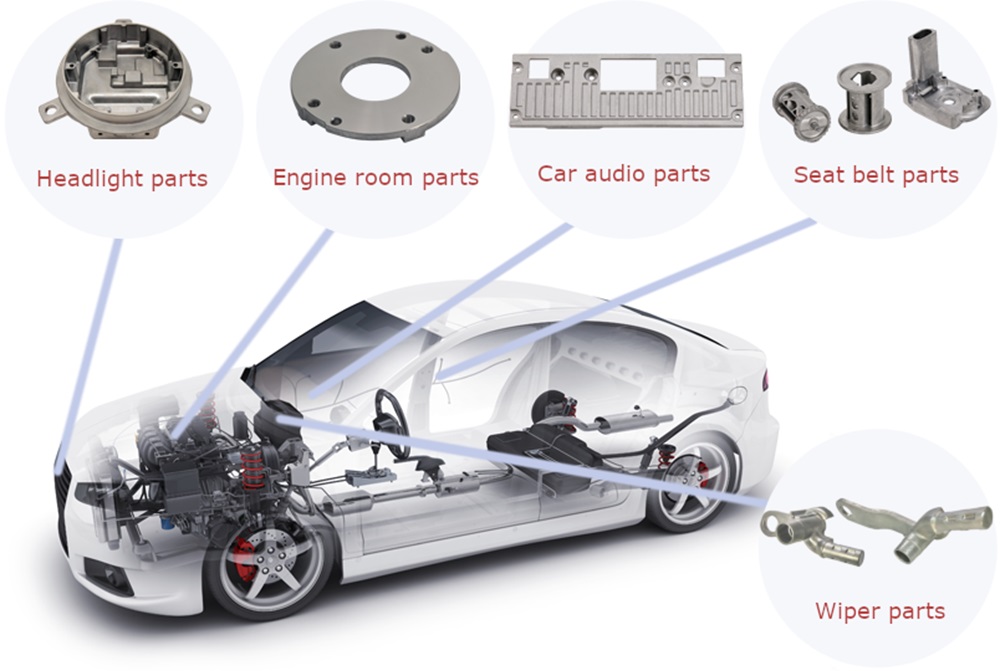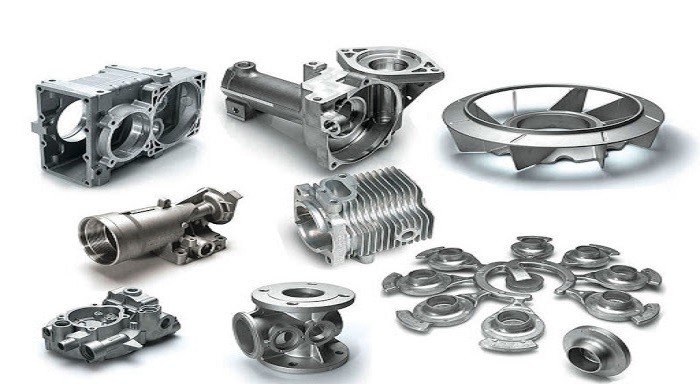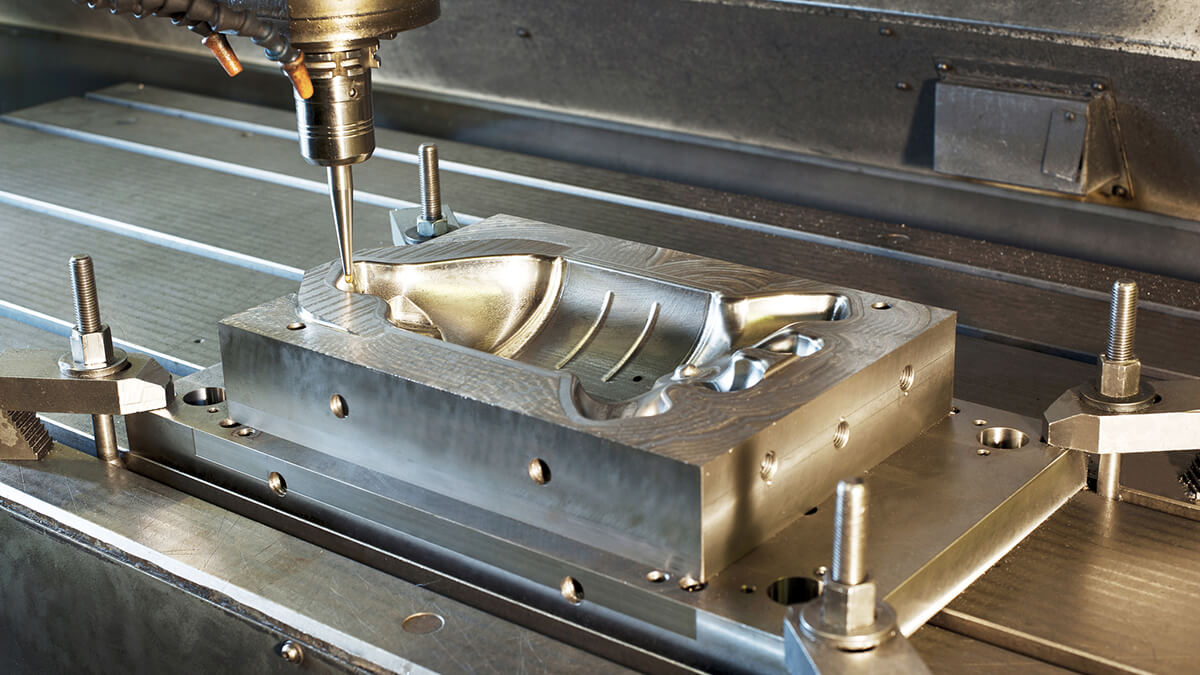Automotive
What Automobile Parts are Manufactured Using Aluminum Die Castings?

Aluminum die Casting is a popular manufacturing process for a wide range of industries, including the automotive sector. It offers numerous advantages in terms of cost-effectiveness, lightweight properties, and the ability to create intricate designs. In this article, we will explore the various automobile parts that are manufactured using aluminum die castings.
Aluminum Die Casting Process
Before delving into the specific automobile parts, it’s essential to understand the aluminum die casting process. It involves melting aluminum and injecting it into a mold under high pressure. This process is highly efficient, producing parts with excellent dimensional accuracy.
Advantages of Aluminum Die Castings
Aluminum die castings come with several advantages, making them the preferred choice for many automotive components:
- Lightweight: Aluminum is known for its lightweight properties, which help improve fuel efficiency in vehicles.
- High Strength: Despite being lightweight, aluminum die castings offer excellent strength and durability.
- Complex Shapes: The die casting process allows for intricate designs, reducing the need for additional assembly.
- Heat Dissipation: Aluminum’s superior thermal conductivity is vital for parts that need to manage heat effectively.
Applications of Aluminum Die Castings
Aluminum die castings find application in various industries, including aerospace, electronics, and automotive. The automotive sector, in particular, relies on Aluminum die Casting manufacturer for a wide array of components. Let’s explore some of the most common automobile parts manufactured using this process.
Automobile Parts Manufactured Using Aluminum Die Castings
- Engine Blocks: Engine blocks are crucial components in a vehicle, and aluminum die castings are often used to create lightweight yet robust blocks.
- Transmission Housings: These housings house the transmission components and benefit from the lightweight properties of aluminum die castings.
- Cylinder Heads: Aluminum cylinder heads are preferred due to their weight savings and excellent thermal properties.
- Intake Manifolds: These components play a key role in the engine’s air supply and benefit from aluminum’s lightweight design.
- Wheel Hubs: Aluminum wheel hubs reduce unsprung weight, enhancing vehicle performance.
- Brackets and Mountings: Various brackets and mountings within a vehicle are produced using aluminum die castings for their structural strength.
- Heat Sinks: In electronic components of a vehicle, aluminum die cast heat sinks effectively dissipate heat.
- Oil Pans: These crucial parts for engine lubrication are often made from aluminum die castings for their lightweight and durability.
- Water Pump Housings: Aluminum offers corrosion resistance, making it ideal for water pump housings.
- Steering Knuckles: These components require both strength and lightweight properties, which aluminum die castings provide.
- Alternator Housings: The lightweight nature of aluminum helps reduce the overall weight of the alternator assembly.
- Suspension Components: Aluminum suspension parts enhance vehicle handling while reducing weight.
- Oil Filter Adapters: Lightweight adapters help maintain engine efficiency.
- Turbocharger Housings: Turbochargers benefit from the durability and heat management of aluminum die castings.
Quality and Durability of Aluminum Die Cast Parts
Aluminum die cast parts undergo stringent quality control to ensure they meet industry standards. These parts are durable and resistant to corrosion, making them ideal for use in automobiles.
Maintaining Efficiency and Environmental Sustainability
Aluminum die castings offer not only performance advantages but also environmental benefits. With an increasing focus on sustainability, many automakers are turning to aluminum as a more eco-friendly alternative to heavier materials. The reduced weight of aluminum components contributes to improved fuel efficiency, reducing the overall carbon footprint of a vehicle.
Additionally, aluminum is highly recyclable, making it a sustainable choice for the automotive industry. Recycling aluminum requires significantly less energy compared to producing it from raw materials, which aligns with the global push for greater environmental responsibility.
The Ongoing Evolution of Aluminum Die Castings
As technology advances and materials science evolves, aluminum die castings continue to improve. Engineers and manufacturers are constantly exploring ways to enhance the performance of these components. This includes developing innovative alloys that offer even better strength-to-weight ratios and corrosion resistance.
Moreover, research into more efficient casting techniques, such as high-pressure die casting and vacuum-assisted die casting, is ongoing. These advancements not only reduce waste but also provide manufacturers with more precise control over the casting process, resulting in higher-quality parts.
Collaboration and Innovation
The widespread use of aluminum die castings in the automotive industry has led to increased collaboration between automakers and suppliers. This collaboration focuses on creating custom solutions that meet the specific needs of each vehicle model. Engineers work closely with die casting experts to design components that maximize efficiency, safety, and performance.
Innovations in metallurgy and casting technology have enabled the production of intricate and lightweight parts that were once thought impossible. As a result, vehicles are becoming more fuel-efficient and environmentally friendly, all while maintaining the highest safety standards.
Future Prospects
The future of aluminum die castings in the automotive industry looks promising. As electric vehicles (EVs) gain momentum, the demand for lightweight components will further increase. Aluminum’s exceptional properties make it a natural fit for EVs, where reducing weight is essential to extend battery life and range.
Furthermore, aluminum die castings are finding applications in emerging technologies such as autonomous vehicles, where efficient and lightweight components are critical for the success of self-driving systems.
Conclusion
The use of aluminum die castings in the car manufacturing of automobile parts is a testament to the continuous pursuit of innovation and sustainability in the automotive industry.
From engine blocks to suspension components, these castings offer a winning combination of lightweight design, strength, and environmental friendliness. As technology advances, we can expect even more remarkable developments in the use of aluminum die castings, shaping the future of automobiles in the 21st century






























